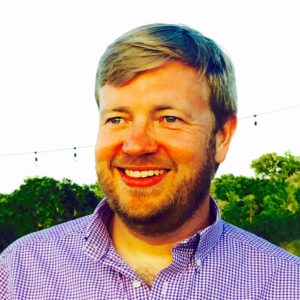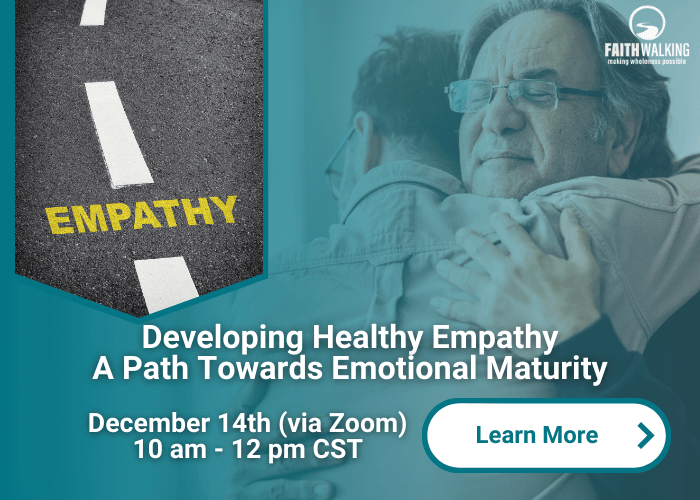Listen to the 23-minute interview Nine Questions to Joel Pulis:
- Tell us about your journey as a Faithwalking Circle
- Do you consider yourselves a fully-formed independent Circle?
- Tell us about your community and your context
- Is your FW Circle connected with any city-reaching movement in your city?
- How is your FW Circle financially supported?
- How has this journey been for you personally?
- How do you envision community and how is FW helpful for that?
- What is one of the challenges that you are facing now?
- How is your idea of mission being challenged or transformed?
Written by Laura Wilcox
“I will do it alone. I will prove myself.”
This is the vow Joel Pulis made as a young child, the oldest son with siblings who struggled with serious difficulties like mental illness and dyslexia. He was looked upon as the “self-sufficient one” who would make a way for himself, so he began to learn ways to live out that image. Carrying the vow into adulthood, Joel reflects on how it impacted his outlook on himself and his role, at that time, as the pastor of a church for the mentally ill: “As a pastor, I had the sense that my job was to give to others – that I don’t have needs, I don’t need to receive.”
Joel looks back with gratitude to God for revealing his deeply ingrained pattern of self-sufficiency. The process of spiritual formation through the Faithwalking curriculum helped him become more aware of the shame and anxiety that pushed him toward isolation. “Where I have been transformed is that in those early years of Faithwalking, I was opening myself new to receive from others.” Joel’s transformation propelled him to serve full-time as the Oak Cliff Circle Leader in Dallas, which has been going strong since 2012 under the name Body Oak Cliff. He describes the maturation of his leadership over the course of his Faithwalking journey: “I’m kind of horrified at the journey I needed to be on to become a leader who could really lead a Circle. My own vow – “I will do it alone and I will prove myself” – created some ego needs and independence that became kind of a joke as I tried to create a collaborative ministry for my neighborhood.” Faithwalking helped Joel see how he resisted being that type of leader. “It’s been really, really great for me on the personal journey for Faithwalking to be able to address some of those places in my life. I’ve seen a lot of growth, and now…I have some gifts to really be at peace, work collaboratively, go a little slower, invite others to the process, and to really empower.”
“We can do this. We’re in this together.”
To devote himself fully to managing a Circle, Joel took a step of faith and began to raise his own support. He serves alongside a partner, Deborah Cunningham, who also trusts God in the same way. Joel emphasizes that having a team of laborers who can fully dedicate themselves to the mission is critical to spreading the Faithwalking vision. During the early days of transition, and feeling overwhelmed, Joel recalls the meaningful advice he received from Faithwalking founder Jim Herrington: “You just need to be one step ahead. Kind of like AA” – one addict helping other addicts. These words of wisdom continue to give Joel and his team strength when anxiety arises about fulfilling the mission – and a strategy for moving forward. He says that one of the reasons the Oak Cliff Circle is where it is today is that they have believed this truth and have leaned into raising up coaches. Gone are the days of “I will do it alone.”
The Oak Cliff area – with a population of 300,000 – would be one of the top ten cities in Texas if it were separated out from the city of Dallas. Joel and Deborah come alongside this primarily Hispanic community. Their goal is to empower the leaders in struggling neighborhood churches to make a difference for the Kingdom by sharing tools and resources and embedding the Faithwalking culture in their congregations. This mutual commitment extends far beyond any denominational differences – whether Episcopal, Pentecostal, Methodist, or Baptist, they no longer see each other as competitors but share a hunger for their community to be impacted by the love of Christ. An upcoming Faithwalking retreat they have scheduled will bring together people from very different ends of the theological spectrum, which, Joel says, “is fun!” “The Faithwalking conversation seems to be so basic to our common humanity and orthodox Christian faith that it allows for [a wide variety of people] to do it, but what connects us is this outflow of life and being a blessing to the neighborhood – seeing God’s work and design come.”
Meeting the needs of the population Joel ministers to requires contextualizing Faithwalking to their unique situation. “We need our own stories and to make it our own. So we’re on that journey. To me what the Houston community offers and gives is that freedom.” He is grateful for that while maintaining that his goal is to be interdependent with the greater Faithwalking community, and that he doesn’t want to drift too far from the original vision or lose any of the fruitfulness.
Healing in community
Joel recalls how the Circle work began for them, after he and his wife and a team participated in Faithwalking 101 retreats during the fall of 2012. They led their first 101 retreat in Dallas the following spring. Joel shares that the day their first 201 course was scheduled to begin, the couple received the devastating news that Laura had breast cancer. Over the next three years, she suffered through chemotherapy, a double mastectomy, and radiation. After a period of remission and a return to better health, the cancer spread to Laura’s brain. She passed away in June of 2016.
Joel speculates that throughout the excruciating years of Laura’s illness, his vow of “I’ll do it alone” was challenged at a very personal level. “We grew up together and were high school sweethearts. She was everything to me in terms of support.” During the course of Laura’s sickness and after her death, Joel experienced community wrapping its arms around his family. “It has been really hard, and a day does not go by that I don’t think about Laura and feel the loss. But at the same time, I think this connection to community has been the thing that enables me to get out of bed in the morning and keep going.” During Laura’s illness two coolers were kept on their porch to receive meals. “But everyone in the community knew where the house key was hidden,” he says, and people came and went. “I think this is a metaphor of what it looks like to live in openness and vulnerability with those around you.” Joel muses that he can’t imagine walking this journey apart from Faithwalking. Faithwalking has helped Joel see that doing life alone isn’t what God desires for him.
For Joel, the importance of living a reflective life cannot be overestimated in this journey – and being aware of when your shame and anxiety get triggered. Because of this formation process, he can now sit across the table from someone and pick up on their shame and their struggle. “I have a chance to share love. I can see where they’re anxious and bring in peace. That’s mission.” He acknowledges that at times the Faithwalking vision isn’t well-received by those in the center of the church world, those who are comfortable and don’t recognize their need for change. He has found that the vision resonates best with people who are disaffected with the Church, on the fringes, and/or who recognize their brokenness and need and are less comfortable with the status quo.
One of Joel’s favorite examples of a changed life is the story of a missionary in Oak Cliff who participated in Faithwalking. This man had a son who was a drug addict. Over time his son began to see a difference in his father, who started to show up in new ways in their relationship. A missionary himself, missional living was hardly a new concept for him. Yet initially he did not want to be a part of a new ministry Body Oak Cliff launched for addicts in the area. After having gotten in touch with the love of God in the midst of his own brokenness, however, this man now serves weekly as a part of that missional community. Joel reflects that some of the best fruit comes when people get in touch with their own brokenness and experience healing, and then begin to offer that healing to other people.
A new way
Fast forward to the present, and Joel has just put his house on the market. For years he has been dreaming of what it would look like to live in community. “My wife used to say, ‘Joel, you want this, but you would resist this.’ If my vow is “I will do it alone,” how could I live in community with other people?” But now, Joel says, he is opening himself to a new way – of saying, “No, no, I need other people in my life.” Because of this, he is ready to make his dream a reality.
To that end, Joel and his daughter, Grace, are exploring moving into a communal living situation. As an outflow of Faithwalking, they want to model that kind of intentional community on mission in the neighborhood. He says they often remind themselves in his Circle that we are formed in community and must therefore be transformed in community. “To me that is an idea I have personally walked.” There was a time that he bought into the lie of “my personal walk with Jesus and my quiet time and all that stuff.” But, he concludes, “if the goal is to love our neighbor and to love God in this relational context, then it is only in opening ourselves to others to really receive and be vulnerable and authentic that we can be changed.” These are powerful words, in a powerfully transformed life.



